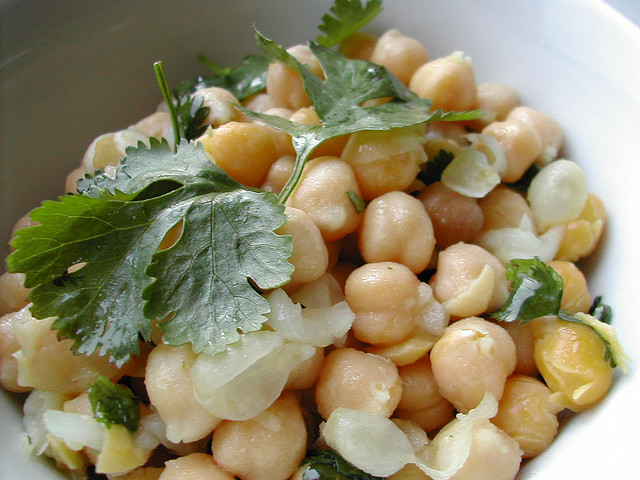Inositol, a member of the B-vitamin family, has been center of great interest. Forms of inositol have been found to improve insulin levels in diabetic patients and improved follicular growth/ovulation/menstrual cycles in PCOS women.
What is inositol? It is a B-vitamin and the sweet nature of inositol comes in part from the properties that make up the nutrient, in particular the component of cyclohexanehexol. While still a form of sugar, inositol works differently from glucose. Inositol is a compound that has nine different forms. The most well-known and nutritionally active form is "myo-inositol", which most people simply refer to as "inositol". It is a necessary component of the membranes of your cells and is vital to many biological processes in your body. It is a precursor to a number of essential "signaling molecules" that instruct cells how to behave. The main information about inositol in the body has more to do with what happens when there is a deficient amount present. A lack of inositol in the system can lead to such conditions as constipation, high cholesterol (fatty liver), problems with vision and general health of the eyes, and hair loss. Inositol plays a major role in preventing the collection of fats in the liver, as well as promoting healthy hair growth.
What is d-chiro-inositol? D-chiro-inositol (commonly abbreviated DCI) is a member of a family of related substances often referred to collectively as "inositol," although that term encompasses several isomers of questionable biological relevance. It is known to be an important secondary messenger in insulin signal transduction.
DCI is not abundant in most diets although it can be found in significant quantities in buckwheat farinetta and some other foods (see below for list). Contrary to common claims of the non-availability of DCI, it is in fact commercially available to the public as a nutritional supplement in the US.
DCI appears to have substantial beneficial effects for PCOS, an observation rationalized by the apparent role of DCI in the etiology of PCOS. In double-blind studies, women with PCOS who received DCI experienced lowered free and total testosterone, lowered blood pressure, increased insulin sensitivity and a corresponding improvement in glucose disposal, frequency of ovulation and plasma triglyceride concentrations.
DCL is the common supplement used in research and is a component of inositol. When choosing inositol as supplement for glucose/insulin stabilization, take DCL, since it is increasing the body’s sensitivity to glucose, compared to inositol. DCL can be hard to find and it very expensive, so try inositol for a month. If you feel no different, start taking DCL.
The below research has shown DCL to be as effective as Metformin in promoting ovulation. The supplement could be solution to try before being prescribed Metformin or helping women who have no ovulation with the drug.
Interested in purchasing DCL, try Chiralbalance.
www.chiralbalance.com/index.html
Information from
www.wisegeek.com/what-is-inositol.htm
http://en.wikipedia.org/wiki/D-chiro-inositol
http://content.nejm.org/cgi/content/abstract/340/17/1314
Study the efficacy and tolerability of a traditional Indian drug containing D-Chiro-Inositol versus Metformin in hyperinsulinemic PCOS subjects
vol 86, issue 3, pg 879
G.N. Allahbadia and et all.
Objective
To study the efficacy and tolerability of a traditional Indian drug containing D-Chiro-Inositol versus Metformin in hyperinsulinemic PCOS subjects
Results
No significant differences for variables like body weight, systolic blood pressure and menstrual frequency was observed between the two groups. Both the groups showed significant decrease in body weight at the end of 6 months. A significant improvement in the menstrual frequency was observed in all the patients during the study (34.4 to 33.6 days in the Control Group and 35.7 to 35.1 days in the Study Group). This difference too was not statistically significant when both groups were compared. Fasting Insulin levels reduced in all patients by the end of the study, but the difference between the groups was not statistically significant. However, PCOS women of the Study group had a significant decrease in the diastolic blood pressure and testosterone levels at the end of 6 months in comparison to the Control group. Patients in the Study Group also showed a better patient compliance in drug therapy than the patients in the Control Group.
Conclusion
The traditional Indian drug containing D-Chiro-Inositol is equally efficacious but with better tolerability and better patient compliance than Metformin and its use in hyperinsulinemic PCOS leads to rapid suppression of insulin and androgen levels as well as improved menstrual frequency. The post-receptor insulin mediator signaling process by D-chiro-inositol promotes efficient intracellular glucose utilization and is fundamental to the correction of pathophysiology of PCOS and probable enhancement of pregnancy rate and outcome.
A foods list of items that contain inositol (per 4 oz):
Soy Lecithin 2100 mg
Chickpeas 760 mg
Brown Rice 700 mg
Wheat germ 690 mg
Lentils 410 mg
Barley 390 mg
Veal & Liver 340 mg
Oats 320 mg
Torula yeast 270 mg
Beef 260 mg
Alfalfa 240 mg
Oranges 210 mg
Peanuts 210 mg
Molasses 180 mg
Whole wheat 170 mg
Peas 160 mg
Grapefruit 150 mg
Strawberries 95 mg
Cauliflower 92 mg

